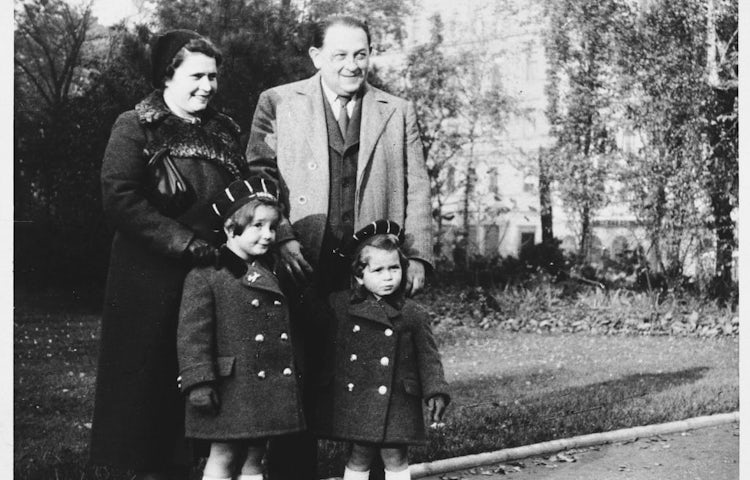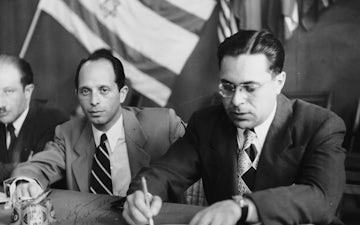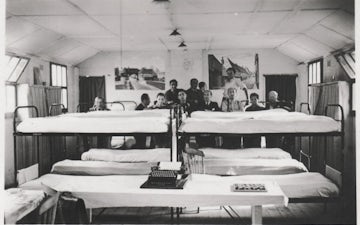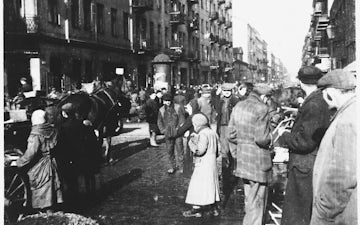
Nicholas Winton (1909-2015) was a stockbroker born in West Hampstead in London. His parents were of German-Jewish ancestry but chose to have their son baptised in the Anglican Church. Between December 1938 and September 1939, Winton worked with friends and colleagues in Prague and London to organise the transport and reception of children threatened by the Nazi racial laws which applied in Czechoslovakia after the German invasion of March 1939.
Winton was asked to come to Prague by his friend Martin Blake, a teacher at Westminster School and a member of the British Committee for Refugees from Czechoslovakia. Blake introduced Winton to Doreen Wariner, who showed Winton the overcrowded refugee camps. Working from his hotel room – often hearing petitions while he shaved – Winton collected applications. He returned to London with the names of children and spent his evenings and weekends raising money and recruiting foster parents. He believed that the time was running out before the Nazis invaded Czechoslovakia, breaking the Munich Agreement of September 1938.
The first transport of children from Prague left by air on 14 March 1939, just a day before the Third Reich invaded Czechoslovakia, incorporating the Czech lands into Germany and creating a Slovak puppet state. Between March and August, Winton and his colleagues organised a further seven transports departing by rail. The last transport left Prague on 2 August 1939, a month before the outbreak of WW2.
Winton’s work was largely unknown until the late 1980s, when his wife Grete found a scrapbook with details of 664 children he had helped. In 1988, an episode of the BBC magazine programme That’s Life introduced Winton to just some of those he had helped, as well as to British public attention. Winton was knighted in 2002 for services to humanity. Asked to explain his decision to rescue so many, he claimed that something simply had to be done. He quoted Doreen Wariner’s words to him in Prague in 1938: ‘Look, if anything can be done, perhaps you’d like to try and do it.’ Winton died in 2015, aged 106.




